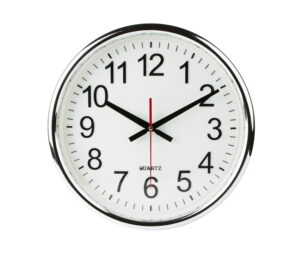 If there’s any year we don’t want to deal with one more thing going wrong, it’s 2020 right? So if your heater is showing signs that it needs to be repaired, it may be really tempting to ignore it. After all, your heater is a sturdy piece of equipment—it will be fine, right?
If there’s any year we don’t want to deal with one more thing going wrong, it’s 2020 right? So if your heater is showing signs that it needs to be repaired, it may be really tempting to ignore it. After all, your heater is a sturdy piece of equipment—it will be fine, right?
Well, while a well-maintained heater will certainly give you reliable service, no heater is indestructible. Sooner or later, you’re going to experience an issue or to with your heater, and when this occurs the best thing you can do for that heater is schedule professional repairs ASAP. Yes, dealing with a heater problem can be a hassle, and it’s hardly ever “convenient” for your budget or schedule. But waiting too long can lead to bigger repair needs and more expensive repair costs.
We want you to be as comfortable as possible as we head into winter. True, we may not have the chilly and snowy weather of our neighbors up north, but our winters are nothing to sneeze at. Get your repairs done as soon as you can, for these 3 reasons:

 We may not be ready to admit it, but wintertime is right around the corner. True, we don’t get the frigid cold temperatures that households in other parts of the country do. But our winters are still chilly by our regards, right? And each of us wants a fully functional, affordable heating system in our homes to get us through.
We may not be ready to admit it, but wintertime is right around the corner. True, we don’t get the frigid cold temperatures that households in other parts of the country do. But our winters are still chilly by our regards, right? And each of us wants a fully functional, affordable heating system in our homes to get us through. There are certain noises that after a while, are fairly easy to “tune-out.” If you live on a busy street, for example, you may get used to the noise of cars whizzing by and the honking of horns. What you should never get used to though, are noises coming from your furnace that you’ve never heard before.
There are certain noises that after a while, are fairly easy to “tune-out.” If you live on a busy street, for example, you may get used to the noise of cars whizzing by and the honking of horns. What you should never get used to though, are noises coming from your furnace that you’ve never heard before.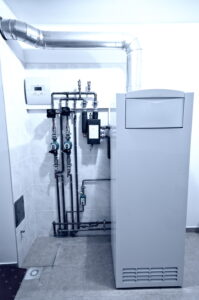 When your gas furnace doesn’t come on during a cold winter day, that’s a problem. It may be a
When your gas furnace doesn’t come on during a cold winter day, that’s a problem. It may be a 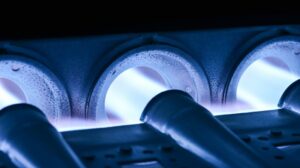 Gas-powered furnaces are not inherently dangerous appliances. This is something we want to clarify right away! We aren’t looking to panic you just because you choose to heat your home with a gas-powered furnace. But like any other powerful appliance in your home that uses gas, hazards can happen if it’s not well cared for.
Gas-powered furnaces are not inherently dangerous appliances. This is something we want to clarify right away! We aren’t looking to panic you just because you choose to heat your home with a gas-powered furnace. But like any other powerful appliance in your home that uses gas, hazards can happen if it’s not well cared for.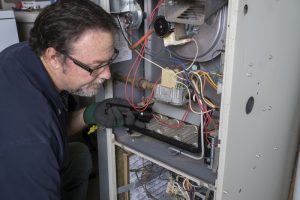 Fall is officially here and even though our temperatures haven’t quite cooled down enough for consistent heater use, now is the time to think about whether or not you’re well prepared for when temperatures do drop. Fortunately, you have plenty of time to arrange for routine maintenance for your residential heater. This is a job that requires the professional touch of trained and experienced HVAC professionals, which is what we are here for!
Fall is officially here and even though our temperatures haven’t quite cooled down enough for consistent heater use, now is the time to think about whether or not you’re well prepared for when temperatures do drop. Fortunately, you have plenty of time to arrange for routine maintenance for your residential heater. This is a job that requires the professional touch of trained and experienced HVAC professionals, which is what we are here for!
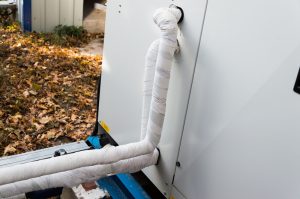 There aren’t too many homeowners out there who really understand how air conditioners work. This isn’t a bad thing or something you’re expected to know a lot about—after all, that’s what the professionals are here for!
There aren’t too many homeowners out there who really understand how air conditioners work. This isn’t a bad thing or something you’re expected to know a lot about—after all, that’s what the professionals are here for!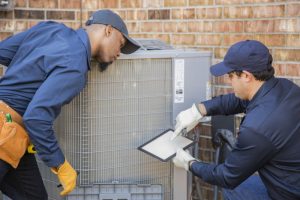 It’s easy, especially this late in the summer season, to ignore small signs that something might be amiss with your air conditioner. But the fact of the matter is, this is when your air conditioner is most likely to break down, because this is the time of the year it runs the most and essentially works the hardest.
It’s easy, especially this late in the summer season, to ignore small signs that something might be amiss with your air conditioner. But the fact of the matter is, this is when your air conditioner is most likely to break down, because this is the time of the year it runs the most and essentially works the hardest.